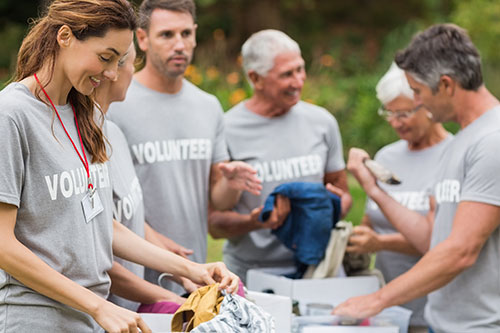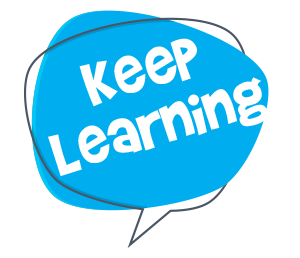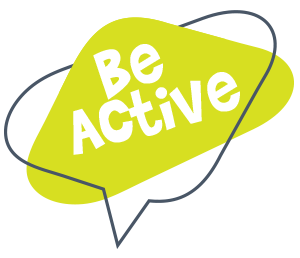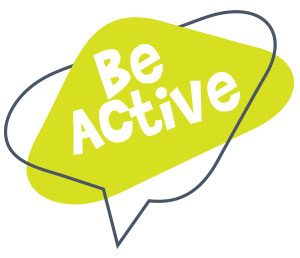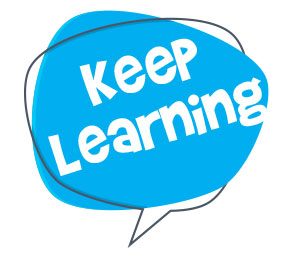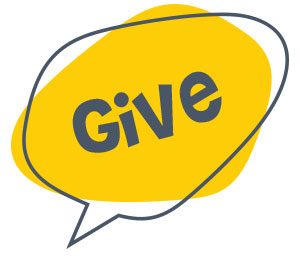Recovery Radio
Each year since 2017 a group met every week for 8 weeks to learn about the art of radio documentary making.
We were all in the process of recovery from mental health challenges. We told each other about some of the dark times we’ve experienced and how we got through them. We played music, shared our favourite tunes, drank tea, chatted and most importantly listened to each other. There was huge power in telling the stories and in being heard. We found each other’s stories incredibly inspiring.
Over the weeks we recorded interviews and music and worked together with documentary maker Leeanne O’Donnell to make 6 short audio documentaries that captured the essence of our Recovery process. We are sharing them in the hope that they might help others who are having a hard time.

The Recovery Stories Project is a Cork Mental Health Services initiative. It is a collaboration between Open Dialogue in Bantry and 49 North Street Skibbereen – a space for creativity, recovery and wellbeing.
These audio pieces were co produced by group members with the support of radio producer and facilitator Leeanne O’ Donnell.
Special thanks to the group participants for their courage and generosity in sharing their stories. Thanks also to Dan Hartnett, Aine Herlihy, Catherine Melia for support with group facilitation and Iseult Twamley for project supervision.
Project Co-ordinator: Kevin O’ Shanahan
Catherine's Story
At the beginning of 2017, I set out on a quest going and looking for Catherine, my grandmother, which led me on to the Hebrides. I had recently discovered that my grandmother was a completely different person, with a different experience of her life, than I had been given to understand and I wanted to see if I could find her.
I discovered that while my family had come from Lancashire and had lived in Lancashire, actually, they’d gone back for centuries living on the Hebridian Island of Barra and that they had been being forced off in the clearances and had come and become miners in Lancashire, as many did. I just felt that if she had lived on Barra, her life would be completely different. So I wanted to find where she was buried in Lancashire and take her back metaphorically to Barra. I said to my friends before I went that I’m going to see if I can find Catherine and take her back to Barra and one friend called and said literally they don’t allow you to dig people up.
Her story is terrible and she was put into what was then called a lunatic asylum at the age of 24. She had two little girls who were then five and three who she never saw again and she was there until she died at 45. I’d gone to try and find this burial pit, this pauper’s grave. A vast graveyard used for centuries. It seemed to be marked on a map, but when I got there, to this enormous place in Lancashire, I couldn’t find it and there was no one to ask. The wind was howling and it was a grey day and I’d sailed into Liverpool to go there to see if I could find her and I couldn’t. There was a chap engraving a gravestone and he stopped what he was doing and he set off for half an hour and tramped around and we found this burial pit and the Good Samaritan went off and left me to it. So there is this grandmother I never knew I had, never knew her name and never met, as she’d died long before I was born. Anyway, I’m standing there, there’s thousands of people buried in this pit, but I’m keening and I’m talking to her. Crying for someone that you never met and talking to someone who’s not been alive for 80 odd years, but it was part of that journey and partly that nobody grieved for her, nobody stood at her burial and it was important that someone did, even if it was a long time later.
We were separated by time, but we were there reunited and I’m standing there and there’s thousands of people buried in this pit, but I’m keening and talking to her.
I’ve been talking to the kids on whatapp and it’s recorded, so there’s this little fragment of sound. So when you take fragments like that and weave them, even if maybe you could just hear a sound, you wouldn’t even realize that it’s someone crying or talking to a grandmother that they had never met, but it’s embedded in their story of going to look for her or take her back to her home Island and not be resting in this pit. She was in what was proudly proclaimed to be the largest psychiatric facility in Europe at the time. So that’s mid last century and she was in the annex of it, which was where people were kept separately and in padded cells. And she had been four months pregnant when they took her into that place and five months later she gave birth to twins; a little boy and a little girl. Of course there were no phones then and her husband was a miner and they lived at the pit head in a caravan, so very difficult living situation. They wrote to him to say the babies were born and he wouldn’t come for them because they’ve been born in that place so they were taken that day to the orphanage. She didn’t get to hold them and four months later on the same day they died. And they were buried in another burial pit then and when she died some nineteen years later, she was buried in the same graveyard – vast, but in fact, although there’s no way that they would have known, they were only a hundred yards apart. So there was a tree in the middle but just by chance I was able to take the soil from where they were sort of and where she was and put it together on Barra. I went with a wee tin and put some soil from where she was buried and there I was driving up on my own to the Hebrides as I drove myself up from Liverpool went across on the ferry to the island. So there’s me and the dead relatives in the car. It sounds facetious and it sounds ridiculous but there had to be some humour because while it was a quest, it was an unusual one and it just felt important. Did I think she was literally in the car? Yes and know is the truth of it. I felt she needed to be remembered now, not for the manner of her life or indeed her death, but just as a person that could have had a different life and was someone I felt really close to and deserved to be in a better place. I can’t change what happened to her. I can’t make it right for her. But she won’t be forgotten and there’s three rose bushes there from here. ust wild roses that are with the soil from the pauper’s grave she was in that burial pit, it’s a better place to be.
So the end of this quest was to leave Catherine and her twins there on Barra in the Hebrides among people that she was related to, in a place where she belonged and in doing that we both came home.
A Friendship
My best friend Donnacha was diagnosed with Stage 4 colon cancer about a year and a half ago and battled hard for 12 months, but it eventually got the better of him and he passed away in October last year. He never got a break, he never got good news. It was always bad news heaped upon bad news even though he was trying everything under the sun. Over the weekend I was down by Lough Hyne and memories came back of him. We used to go swimming there together the 2 of us, he used to love it down there. Sharing that joy with him, the happiness, the joy and fun we would have had and also that sense of vitality I guess. We were always pushing the boundaries in different ways, whether it was physical or social or different things. He was my go to fella if you wanted to try something different or new then you could be pretty sure he would take part. We have a lot of shared memories from back when we were teenagers right through our adult life. I suppose great diversity of memories, from nights out at weekends to training for an ironman or climbing mountains or going for cycles or swims in Lough Hyne. We worked hard, played hard and pushed the boundaries at both ends of the spectrum.
So for the last 3 years I’ve been struggling with anxiety and depression. I consider that my story really kicked off shortly after my son Daragh was born 3 years ago. That has ended me up in a situation where I am seeking out a group like this to share my problems with. I often liken it to a broken kettle. A kettle that starts to boil when nobody has asked for tea. So it’s like it could be out of the blue you just start feeling tense and get a tightness up the back of my neck or in my chest and it’s like where did that come from. So it’s like a broken switch in a kettle that keeps on triggering for the kettle to boil. And I suppose the Donnacha part is a part of my story I guess, but it’s not the story. It is his story but it’s become part of my story.
He would have been one of the first people I told outside of my family and he was very supportive of that and was more in contact and ringing me and checking in on me, even when he was struggling with his own battle, he still had time to talk about my issues which in some ways – you’ve got your best friend dying of cancer and here am I struggling with depression. You think what am I complaining about? Look at Donnacha who has real problems. So in that context, he had a real battle and was doing everything from alternative to chemo and everything. He was doing mindfulness and we used to talk about that, but our reasons for doing it were miles apart. He was trying to overcome cancer and I was trying to overcome my emotional issues. I would go a bit hard on myself for being weak when he was being so strong. And I’d be quite good at that, being hard on myself.
I explored every avenue and was quite pragmatic in trying to deal with it. I was a star pupil in many ways, ticking all the boxes and doing everything possible. I just wasn’t getting any better and causing strain in my relationships at home in a house with 3 young children. I was like a child myself in some regards, as I had to mind myself and in some ways needed minding. I was definitely an extra stress for my wife. So it culminated in me getting admitted to St. Pat’s. But it was difficult going in as Donnacha was dying and was in his last couple of weeks and I knew that if I went in I was going to have to come out for his funeral and that was difficult, knowing that. I remember going and having a conversation with him and telling him what I was doing and we talked about courage and how there are different forms of courage. You get the courageous fella on the rugby pitch or the courageous fella in the pub but when it really comes down to it, the real courage is the way Donnacha was dealing with his illness. Now that was courage. And also I guess it takes courage to put your hand up and say I do need to go to St. Pat’s and get this sorted. Donnacha was extraordinarily courageous in what he was dealing with but it took some courage to admit myself to St Pat’s and do that, but it is just a different type of courage than you would normally expect.
For the funeral service there was some flute music played and that particular piece was played at the start of the service. It was such an emotionally charged atmosphere to be in. He was such a young man with a young 15 week old baby, his recently married wife and family and loads of well-wishers and friends. The church was a bit of a cauldron really of emotion. There was a huge sense of loss that people felt and a huge outpouring of grief, but also such goodwill towards him. Even for the year he was ill, there was huge goodwill with people just wondering what they could do for him. But nobody could do anything in the end really.
In St. Pats there were different things going on during the day and once a week, one of the psychiatrists would take a session and what was interesting, I thought, was he asked the group what is the number 1 reason that people end up in here? So I can’t remember what people said, but his answer was loneliness. That’s the number 1 reason that people end up in St Pat’s or places like that. I wonder maybe was it always going to happen, no matter what. Even if you look at the decisions I made over the last 10 years, a part of me wonders would it have caught up with me no matter what I had done. If I had made different choices or did things differently was there a certain inevitability about it? But the things that I have identified that have impacted on it, have to do with loneliness and isolation. I work on my own, I’m self-employed, very much on my own, so I don’t have work friends or work colleagues and also I live in a remote part of West Cork and I’m not from West Cork, so I don’t have a network of friends down here like I would have had in Cork City. Those two things and I’m not alone in the business, that’s wrong. My father is also involved and I had a very difficult relationship with him for a long time, which was very challenging. So those 3 things, working on my own, living in an isolated rural part of west cork and the difficult relationship with my father. Those three things mightn’t be the whole thing, but they were definitely triggers.
Myself and Donnacha went to Electric Picnic about 5 or 6 times. I had to drag him along the first time and after that he was Mr. Electric Picnic. I think it was the last time we were there in 2014 or 15, Elbow were playing on the main stage and I was there with my wife (my girlfriend at the time) and Donnacha was there with his partner Dolores and a couple of other friends as well and they were headlining on the main stage on Saturday night and that is one of their best known songs. I remember that moment where we were all well and happy and living life to the full and being in the moment and I just think of that and the lyrics: ‘throw those curtains wide, one day like this will see you right’ and I felt like times like this moment will see me right. I suppose it is what friendships are about, sharing moments like that. It’s moments like that are your story and you join the dots, those moments together to form a pattern, the pattern of your life. That was a moment in time when things were good and we weren’t worrying about much, just living it.
The Bull in the Field
Trauma is piercing, if you have a traumatic event in your life your mind is pierced. In a bull-ring you’ve got the bull fighter and the bull. The bull is a strong animal but it dies eventually through piercing. When your psyche is pierced you can’t just put a bandage on and wait for it to get better. Life was going well up to about 6 years ago when I went through a stressful period at work. I experienced a lot of corporate bullying which affected my health and eventually I had to leave work, and that’s how I managed to get involved in Corks mental health services. I was out of work for a year and had a lot of gp attendances and I was suicidal by the end of that year. The doctor suggested that I see a psychiatrist. Up until that time I’ve rarely seem a doctor, been to a councillor or a psychiatrist, I’d always believed that mental health was just something people imagined, thinking why don’t they just get a grip. Any mental unwellness I felt before I had that traumatic time was related to alcohol, hangovers, depressed through alcohol. I was drinking a lot alcoholically and it was Monday morning blues and thinking “urgh! I have to get out of bed” but this time it was different the physical aspects made it difficult, having heart palpitations for 3 weeks at work has been a domino effect on everything since I’ve been out of work. The biggest problem for me was that I was such a great employee there, that this would happen to their best employee and that has been proven with reviews I’ve received over the years, and that this would happen to someone with such integrity at work. It’s been hard to deal with stuff that I’ve never expected to have myself. You can say take your stumbles in life and turn them into positivity, and that’s fine to say, and to do that takes a lot of time.
I’m not kissing ass because I’m in a room with 2 HSE employees, but I have had great help from a variety of stuff that the West Cork Mental Health Services provide over the last 5 years. The National Learning Network provides a focus group in Clonakilty which is a yearlong rehabilitation course for people who have had traumatic experiences and I love that. I have benefited but I have to say unfortunately mental issues are not a broken leg. They just don’t fix in 6 months or 6 weeks, whereas the unfortunate thing is no professional I’ve seen that has said ‘do this, do that and you’ll be fine in 6 weeks’ time’. What I do know is that I had a regular life while I was working and then progressed into isolation and when you isolate yourself your head tends to doubt everything you do, and even though I’m a very difficult person with other people, I do appreciate being around other people and certainly positive people, I love engaging with people who have a sense of purpose.
When I compare my stories to other people I feel like a fraud. I haven’t recovered from cancer which takes a lot more balls than I would have, and so I feel like a fraud. However at the end of the day we all have our own stories and what I’m sharing in comparison with other people seems trivial, but it is still my issue that I have dealt with.
The man who came back from Valhalla
You’re all wrapped up in your own little world and your own little problems and you’re kind of going “aw poor me” sometimes, well that’s what I think “poor little me” and then you hear someone else’s story and you think “aw jesus, they’ve been through hell” and you’re here to discuss it and articulate it in such a fantastic manner. No matter how bad a day you’re having people around makes a difference.
I felt at 38 or 39 that I didn’t want to die that particular type of cancer it was a particular type of cancer in your 50’s and 60’s, you could see the look of horror in the doctors faces and everything I said “I’m not ready to die” so I think what you do in this life will echo in eternity so I said I was going to fight this every inch of the way. My desire was to stick around for my little girl until she turns 18 and if the cancer comes back worry about it then, and stick around for my wife and that was it.
Music got me through it, a lot of music, a lot of good friends. For each stage like the denial there was a different soundtrack to that it could be anything really metal to something really heavy that would blow the windows off your house, the neighbours might never talk to you again but it played a key role in my recovery even to this day. After the surgery a lot of people I probably mentioned before that don’t realize the mental recovery that’s needed as well. Which music played a big part in as well, and in this group I didn’t realize how many musical people there were and it’s after motivating me to get back into playing.
Some days you just can’t get out of bed like the other day I couldn’t get out of bed because of pain and some days you just feel awful know matter what it’s about but I guess the whole big thing is that you’re alive, that you’re here, that you’re given a second chance and don’t waste it. I even feel guilty that I couldn’t get out of bed so I’m going to do this and that today or climb up the ladder and paint that little bit, when you can’t physically or mentally do it. I still haven’t gotten to the bottom of that but my little girl was the driving factor for that and the fact that the consultants said that there was nothing they could do for me and that I’m going to die so their sending me home, and I suppose I’ve proven those guys wrong. Which is a bit childish but nobody can put a best before date on you so besides keep going for my little girl and for my wife was for myself as well to prove that no matter what is thrown at you that you don’t lie down and die, that you get up and fight another day. Life isn’t fair and you can lie down and give in or it’s just getting up and taking what life throws at you and know that there’s a little bump in the road but I wouldn’t have it any other way.
My wife is German and used to work in a hospital in Germany so she contacted her old boss so if it weren’t for her if I didn’t meet her I was dead. I had the surgery in Germany and got the tumour out and proceeded with radio chemotherapy which they didn’t offer in Ireland or the surgery. So I went back into work after it which was in May or June, and they were looking at me very strange and I told them “there was nothing wrong with me I feel fine this is where my head is at I like working”. Then I got back on the plane and went back to Germany again where they scanned me and did all the tests and told me that the cancer is gone. So I said “Great, no operations to be set up” but they said they still needed to operate on the cancer cells from the chemotherapy and so I said “Okay, let’s do it” and I felt like a Viking going off to Valhalla sat there that morning in the operation said I was doing this for my little girl and my wife and just to stay alive because the diseased tissue, the cancer could come back again and very aggressive. So I said “ok” and so I did it and had a few post-op complications like the lymph node in my chest started leaking so I was losing 2ltrs of fluid a day. So they put two tubes inside me, one on each side of my ribcage and I couldn’t move, I had tubes all over me and instead of three weeks of being intensive care I was there for three months where I had to learn to walk again and eat again, that was humbling. I’d see a lot of people moaning about first world problems and there I was trying to learn how to walk again.
I eventually made it and came home in September 2016, was very sick and ended up in hospital again. It’s been a journey and been very grateful of the small simple things forget out your money and your houses and cars. Forget all about that because you can’t take that with you when you go. It’s about living every day even if you can’t get out of that bed, there is still something that you can learn or find value in it. So I guess it was a good lesson in life, so you take things day by day, and maybe I say to myself that this happened for a reason, because before I was just got around here and got around there you know, I’ve got to do this and I’ve got to do that just pressure pressure pressure. Or pay this off and do that and maybe some higher power was saying that this guy can’t drive 300km a day to work five days a week and so something had to give so maybe it was fate that this was some kind of lesson that had to be learned that it’s not all about money or work or putting food on the table, it’s the smaller things in life that make a difference and when I got ill it was that that drove that home. That was probably another motivating factor to experience those things with the people who you care about, so I guess indirectly that was another motivating factor to enjoy the small little things.
Some days my head isn’t right and I don’t see that and yet I should, I should go back to that simple mantra and throughout the illness that was one of the key things, what I’d give to look at the birds in the trees or see the rabbit run through the field or that leaf drop off that old oak tree or that fish grabbing that insect about the river, and I have seen many of those since I’ve recovered and I’m just so grateful for it.
Dancing with Debussy
The first record I ever bought I loved so much which had other pieces on it such as Debussy La Mer, along with many others. I think it was the sheer expressiveness of the music that there is a huge climax that it slowly builds up to and them slowly drifts away. You feel as though you could dance to that music because you can feel the shapes in your body as you hear it being played and that was something I adored at the time. It takes you into that euphoric world then brings you back again and I still connect with that.
I realized I had to actually change my attitude and change my life because of the kids, to actually try and keep them and give them the best life I could. I had to try and get over it so I read a book I can’t remember the name of it. It was about dealing with depression and I read it, made notes in the corners, underlined passages, all sorts of things. All because I knew I had to change my outlook, I had to try and pick myself up for my kids. My son and daughter, they’re worth a lot more than a mum giving in and trying to kill herself every so often, it’s not fair on them. So I had to improve. I did everything I could to try and cope and I was just beginning to do that and I was doing quite well for quite a number of years before the cancer and my husband deciding to leave me.
The combination of the 2, my husband leaving me at the same time as the cancer treatment, In Britain there is this stained glass window that was smashed by followers of Oliver Cromwell at the Reformation, but the parishioners loved it so much that they put it all back together again and put it up in the window again, It feels as though my life is like that now. Totally abstract, whereas before it had been a picture, but none the worse for that it’s just a totally different design, and it was important for them to have their stained glass window and the parishioners now value that more than some of the other windows, because it took so many people to put it back together again, and it has taken a lot of people to help me be put back together again after that double blow.
I feel that everybody around me, all the medical staff, the charity staff, all these people, friends and family both near and far, my sister who kept ringing me up and talking to me at 2 or 3 o’clock in the morning to help me through the night. All sorts of people, Samaritans helped me, all these people put so much work into helping me to become whole again. After that I felt that I cannot let them down, people have put so much work into helping me through this cancer and it was something else to hold on to, to get through it. Even that girl who was serving teas and coffees when I was getting the chemotherapy she would always remember what I wanted and knew my name. It was once every 3 weeks and yet she remembered everyone, she was a treasure. Other people around the neighbourhood, helped enormously or just offered little things, like one would often invite me around for tea and to make sure I ate something bless her, it was wonderful being a part of a family for an evening. So many people have just done little things and yet it made a tremendous difference, and it would be disloyal to just throw it in people’s faces to actually give in to a moment’s hell. So many have done so much that to them it might only be little things, but to me it’s major and it did make a huge difference.
The cancer has enabled me to see how important the little things are and what seemed like the big picture doesn’t really matter. It’s the little things that bring joy everyday and make the difference, and what I value most now are people and their love and their care. I determined when I was diagnosed with cancer that if I was going to die which I’m not going to do so soon, I’d have to leave behind a legacy of love and kindness, not of bitterness and fear. When you get that diagnosis you suddenly realize how beautiful the world is, the wonderful shades of green in the trees, how much the waves on the beach sparkle and dance, and you suddenly think this world is so beautiful let me enjoy it while I can. The other day we caught the spring colours of the leaves coming out and the mayflowers and I thought Yes! I’m alive to see it. Be grateful.
The Blues Guy
So I will attempt to tell you some of my mental health difficulties. I experienced having nightmares as a kid, which were very uncomfortable and I got very upset as a kid. When I was 14 I moved to Australia with my parents, and it was very adventurous and exciting moving to a new country, where I started school and got offered an apprenticeship as a carpenter. Unfortunately I got involved with drugs at a very early age of 15 or 16. I finished up work and moved back to Ireland when I was about 19 and got offered a job in Cork as a barman. At that time I was either 19 or 20 and had a severe love for drugs where I developed an interest in music where I was involved with a blues band.
I remember one evening with my mother she asked me if I would go to the hospital, and I said yes and I went into a psychiatric unit where I spent 3 weeks there. I was diagnosed with paranoid schizophrenia and I didn’t really know what it meant, I didn’t know what I was doing there. Back then it sounded like I might as well have said he had had cabbage for dinner. It only now in my 40’s it means something. They’re just titles, they’re only words these things like schizophrenia or depression, you still have to learn to understand yourself and that comes with living and a sense of maturity I think. Being told you have paranoid schizophrenia at a young age of 24 you think to yourself “no, I don’t” it just doesn’t register.
I came out of the psychiatric unit and continued to take drugs. I was under the wing of my dad at the time, working for him doing odd jobs. I went back up to Dublin and looking back now it was a bit of a haze, continued to do odd jobs, trying to get work and playing a bit of music. When I was in my early 30’s I was advised to stop smoking, which I did. I managed to stop taking drugs. People were warning me to stop smoking because it was it was affecting everything, I got in trouble with the police, I was in trouble with money, it was affecting how I lived my life. It was making a mess of me and so I just stopped and I knew it was a conscious decision, I knew it was damaging me with not just my health but also financially, my family and friends and people I was hanging around with. I attempted to stop and I just stopped. I was told that mental health and cannabis just don’t mix just liked oil and water, and it just clicked and I knew I had to stop.
I’m now about 14 years off of the drugs but the paranoia was really intense. I got involved with GROW which is a mental health programme which is very beneficial and still is. The paranoia was so intense I got counselling for it and it worked, it eased it. I hear voices but not so much these days. The friendship and the understanding of people that can relate to you is a big thing. Particularly with the paranoia and the anxiety and the voices, people can understand and they can relate to you. Just being involved and getting out not just with GROW groups but just being involved in your community or just having a supportive family, I live alone though but I would still have supportive family and friends My health is a lot better than when I was in my 20’s and 30’s. I manage mental health, I live with a stigma of it but there is a lot of awareness about it. I’m coping and getting along nicely and take each day as it comes. I suppose my hope for the future is to give back to those that help other people which I think I’m doing in some ways, helping other people.
Subscribe to The Wellbeing Network - West Cork
Subscribe now to get free resources from The Wellbeing Network, and stay informed about updates, events and information. By signing up, you are opting in to emails from The Wellbeing Network. We will send you useful information about our work - we promise not to bombard you with mails, we always keep your details private, and you can unsubscribe at any time.
Need to talk?
Click Here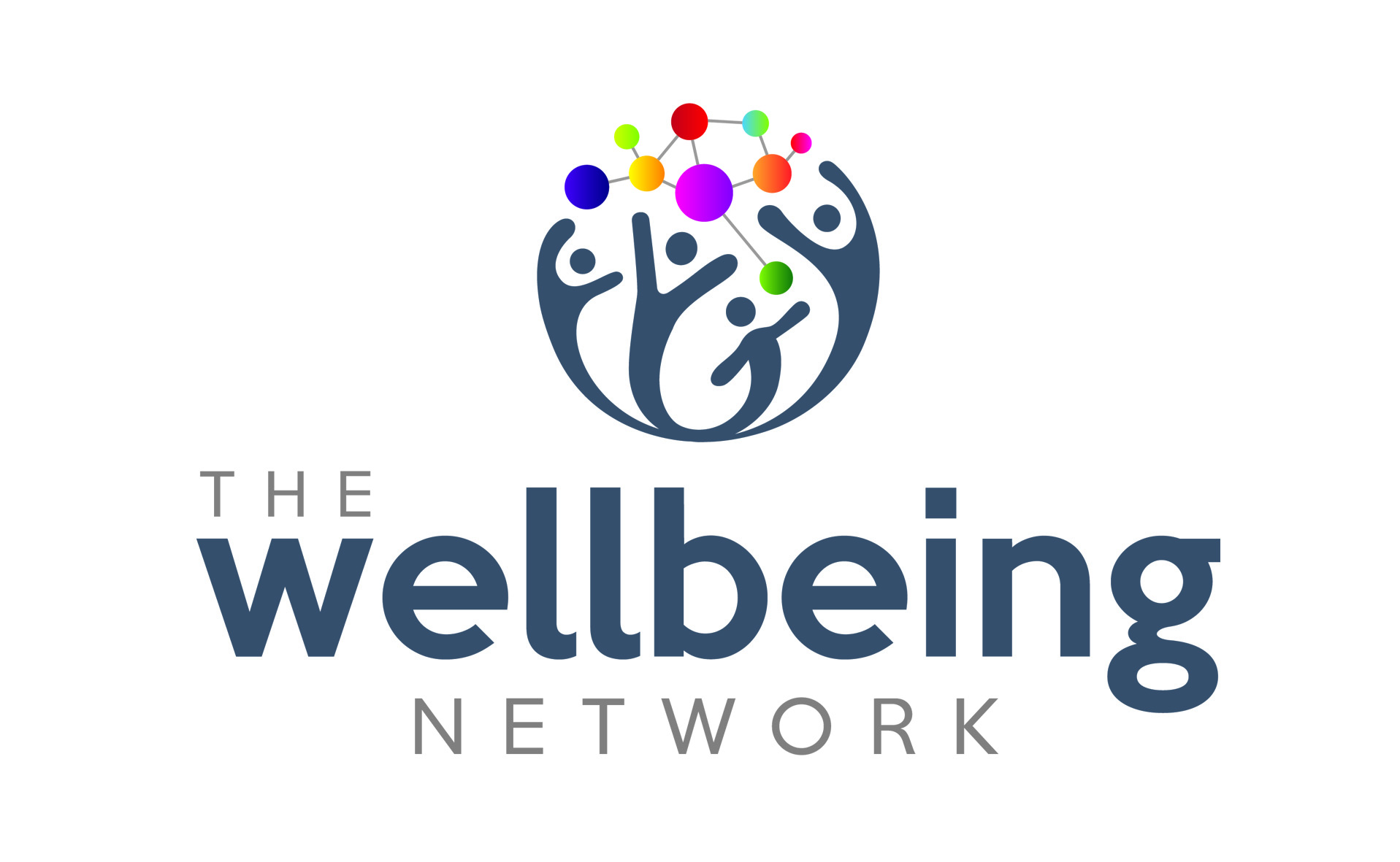

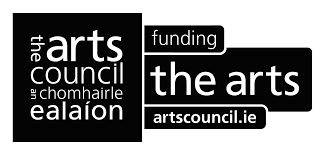
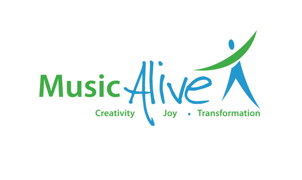

The Wellbeing Network, West Cork
Contact:
National Learning Network Bantry t: 027 51027 e: wellbeingnetwork@nln.ie
Kevin O'Shanahan t: 086 7872481 e: kevin.oshanahan@hse.ie

